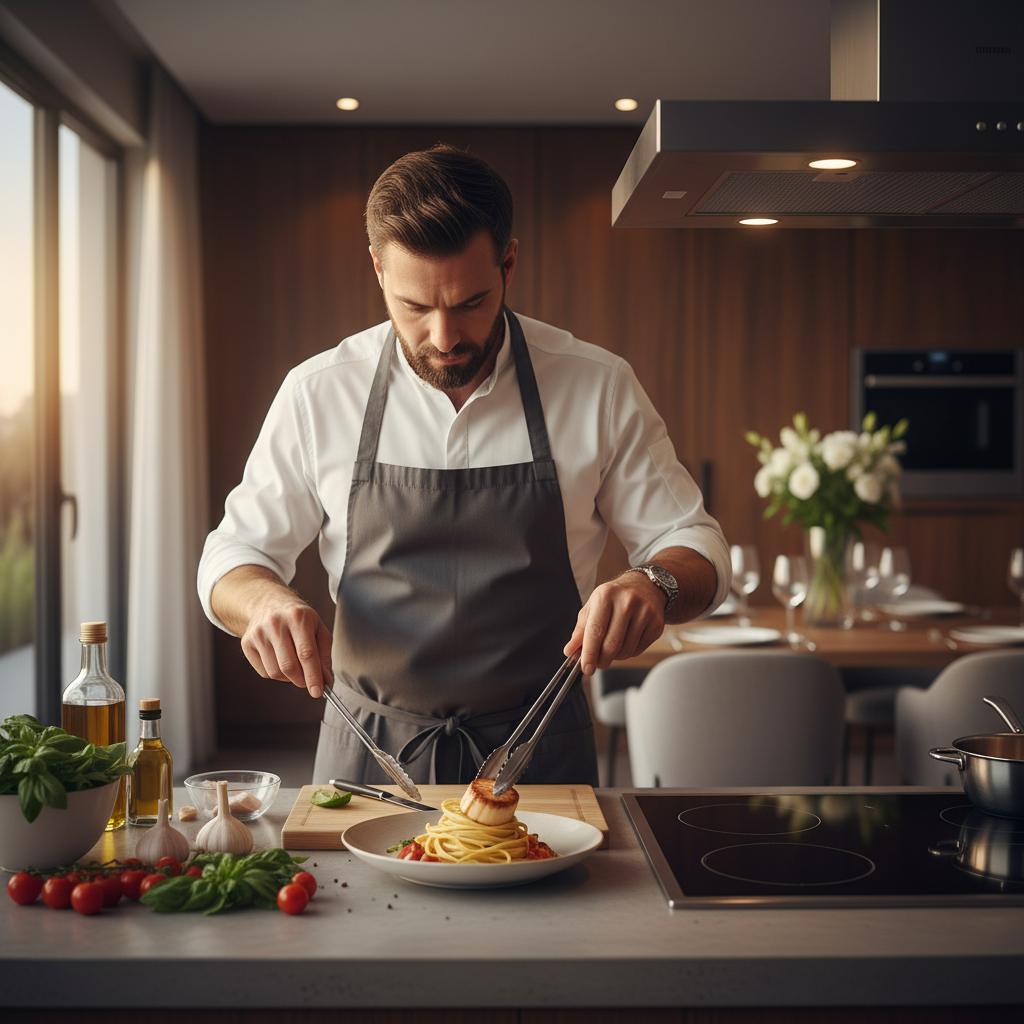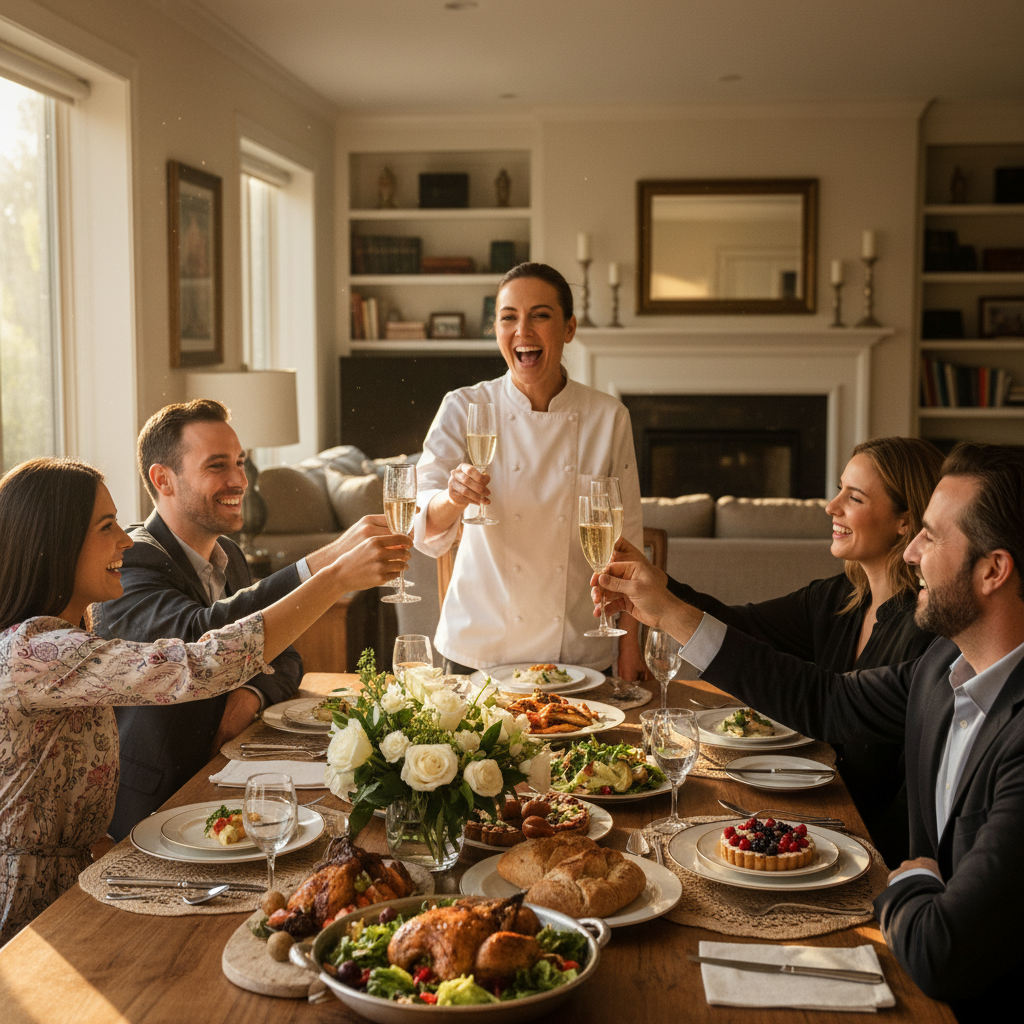
Table of Contents
Introduction
Imagine dedicating your passion and skills to creating exquisite dishes for private clients, only to face unexpected mishaps that could jeopardize your culinary career. As a personal chef, your talent in the kitchen is your livelihood, but without the proper safeguards, accidents or liabilities could threaten everything you’ve worked so hard to build. Insurance for personal chefs is an essential shield that helps protect your business and personal assets from the uncertainties that come with this unique profession.
The culinary world for personal chefs is filled with opportunities and challenges. According to recent industry observations, the demand for personalized culinary services is increasing as more clients seek bespoke dining experiences. However, alongside these lucrative prospects come risks such as foodborne illnesses, accidental injuries, or damage to clients’ property. Without adequate insurance, these risks could lead to significant financial burdens or legal complications. Understanding and securing the right insurance coverage is crucial for personal chefs who want to focus on their craft with peace of mind.
Many personal chefs underestimate the importance of insurance coverage for their profession. They often believe accidents or claims won’t happen to them, or that their general homeowner’s insurance provides enough protection. Unfortunately, this is rarely the case. Personal chef work involves specific risks related to food preparation, ingredient handling, and interaction with clients in their private homes—factors that typical insurance policies do not cover. By having dedicated insurance, you not only comply with potential legal requirements but also meet client expectations, boosting your professional credibility.
For personal chefs who hire assistants or operate in multiple client locations, managing risks becomes even more critical. Workers’ compensation insurance may be necessary in these cases to cover workplace injuries to employees, while professional liability insurance can protect against claims related to errors or omissions in service. Equipment and property insurance safeguard your valuable culinary tools against theft, loss, or damage. Understanding these different insurance types empowers personal chefs to customize their coverage thoughtfully and comprehensively.
What You’ll Learn in This Guide
This guide will walk you through the essential aspects of insurance tailored specifically for personal chefs. We will explore the types of insurance available, offer guidance on selecting policies that fit your needs, and discuss common risks along with how insurance coverage mitigates them.
- Understanding the Basics: You’ll learn about the main types of insurance relevant to personal chefs, including general liability, professional liability, property insurance, and workers’ compensation. This foundation helps clarify what kinds of coverage are necessary in different scenarios.
- Choosing the Right Insurance: Guidance on how to evaluate insurance policies effectively will be provided, covering important factors like coverage limits, premiums, deductibles, and insurance providers’ reputation. You’ll also get tips for obtaining the best deals tailored to your culinary business.
- Recognizing Common Risks: We will outline the typical risks personal chefs face, such as foodborne illness liabilities, property damage, and injury claims. You will see how insurance policies play a vital role in mitigating these risks financially and legally.
- Maintaining Your Coverage: Learn when to obtain insurance, how to keep your policy up to date, and best practices for managing claims and documentation to ensure uninterrupted protection of your culinary career.
Before diving into the specifics of personal chef insurance, it is important to understand insurance basics. Grasping the fundamentals of how insurance works will empower you to make better-informed decisions tailored to your unique business.
The article will also provide a thorough look at why personal chefs uniquely need insurance due to the nature of their work and client expectations. You will gain clarity on how selecting the right policies not only protects you but also enhances client trust and supports long-term business growth. Navigating insurance options can be complex, but with the right insights, the path becomes manageable and rewarding.
As we proceed, expect to discover practical tips and expert recommendations that will help you build a robust insurance plan. Whether you’re just starting your personal chef journey or looking to improve existing coverage, this guide will be a valuable resource. By the end, you will have a comprehensive understanding that enables you to confidently protect your culinary career and enjoy the creative freedom that comes with security.

Building on the introduction, personal chefs face unique risks that make having the right insurance coverage a vital part of protecting their culinary careers. Beyond just cooking, personal chefs often work in clients’ homes or at events, handling everything from food preparation to equipment setup, which exposes them to various liabilities and property risks. Therefore, it is essential to understand the different insurance types available and how they safeguard both the business and personal aspects of a chef’s professional life. This discussion will explore the common risks faced by personal chefs and the insurance coverage options that offer peace of mind and financial security, allowing chefs to focus on their culinary creativity and client satisfaction.
Common Risks Personal Chefs Encounter and How Insurance Mitigates Them
Personal chefs operate in environments filled with potential hazards, ranging from foodborne illnesses to property damage. Knowing these risks is the first step towards ensuring comprehensive protection. Food allergies, undercooked meals, and improper food handling can lead to serious health consequences for clients, which may result in liability claims against the chef. Similarly, accidents causing injuries in a client’s kitchen or the damage of expensive kitchen equipment and property can lead to costly legal battles and repairs. Therefore, having insurance tailored to these challenges is indispensable for any chef executing their business at clients’ homes or event venues.
Moreover, beyond immediate liability, there are financial ramifications if a claim arises. Insurance coverage helps cover legal fees, medical expenses, and repair or replacement costs, which might otherwise be financially debilitating. By transferring these risks to an insurance provider, personal chefs can maintain their business stability through turbulent times and uphold their professional reputation with confidence. It is also important for chefs to recognize the various insurance policies applicable to their profession and the benefits each provides, aligning their coverage with their specific risk profile.
Types of Risks
Understanding the primary risks can help chefs select the appropriate insurance policies that address their most critical concerns:
- Foodborne Illness Liability: Chefs are liable if clients or guests suffer from food poisoning or allergic reactions due to contaminated or improperly prepared food. This risk requires liability insurance that specifically covers food-related incidents.
- Property Damage in Clients’ Homes: Working in different kitchens can inadvertently lead to damages such as broken appliances, fire damage, or water leaks. Property insurance safeguards chefs from the financial burden of repairing or replacing items damaged during their service.
- Injury Claims from Accidents: The kitchen is a high-risk environment where slips, cuts, burns, or falls can occur to the chef, assistants, or guests. Workers’ compensation insurance and general liability policies help cover medical bills and protect the chef from lawsuits related to these incidents.
Choosing the Right Insurance Plan for Your Culinary Career
Selecting suitable insurance coverage requires a clear understanding of policy scope, pricing, and provider reliability. It’s not just about having insurance but having the right type and amount of coverage to fit your unique business model. The culinary world demands customizable insurance solutions that can accommodate the varying scales of personal chef operations, whether working solo, with assistants, or providing catering for large events. Researching multiple providers and insurance options ensures that you’re not underinsured or overpaying for unnecessary coverage.
Additionally, knowing how insurance companies evaluate risks and set premiums can empower personal chefs to make informed decisions. Policies with high deductibles may lower monthly costs but increase out-of-pocket expenses when claims occur. Conversely, extensive coverage with lower deductibles might mean higher premiums but better protection. Striking the right balance is crucial for financial sustainability while maintaining comprehensive protection. Furthermore, consulting specialized insurance brokers who understand the culinary industry can provide personalized advice and access to discounts designed for chefs.
Important Considerations for Selecting Insurance
Key factors should be evaluated carefully when choosing an insurance policy suitable for personal chefs:
- Scope of Coverage and Limits: Ensure the policy covers all major risks tied to your chef services, including liability, equipment damage, and employee-related issues if applicable. Adequate limits prevent situations where coverage might fall short during significant claims.
- Premium Costs and Deductibles: Balance affordability with the financial risk of higher deductibles. Compare premium offers while considering your loss history, business size, and risk tolerance.
- Reputation of Insurance Providers: Choose insurers with proven claims handling excellence and customer service. Reliable providers boost confidence in receiving timely assistance during stressful claims processes.
- Industry-Specific Expertise: Working with brokers or companies specializing in personal chef or culinary business insurance can unlock tailored policies and exclusive discounts not available through general insurers.

